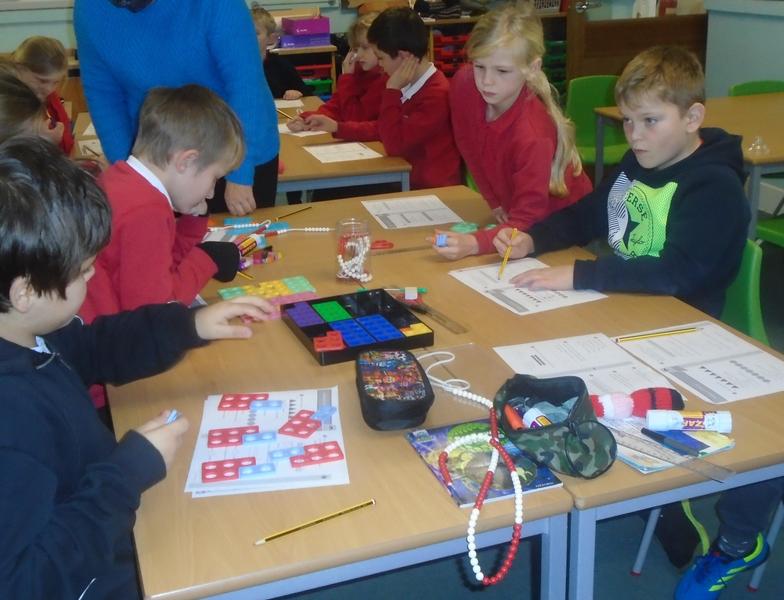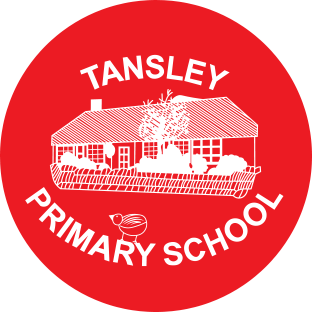Mathematics

Maths at Tansley Primary
Intent
The Maths National Curriculum 2014
“Mathematics is a creative and highly inter-connected discipline that has been developed over centuries, providing the solution to some of history’s most intriguing problems. It is essential to everyday life, critical to science, technology and engineering, and necessary for financial literacy and most forms of employment. A high-quality mathematics education therefore provides a foundation for understanding the world, the ability to reason mathematically, an appreciation of the beauty and power of mathematics, and a sense of enjoyment and curiosity about the subject”.
The national curriculum for mathematics aims to ensure that all pupils:
-
become fluent in the fundamentals of mathematics, including through varied and frequent practice with increasingly complex problems over time, so that pupils develop conceptual understanding and the ability to recall and apply knowledge rapidly and accurately.
-
reason mathematically by following a line of enquiry, conjecturing relationships and generalisations, and developing an argument, justification or proof using mathematical language
-
can solve problems by applying their mathematics to a variety of routine and non-routine problems with increasing sophistication, including breaking down problems into a series of simpler steps and persevering in seeking solutions.
Implementation
At Tansley Primary School children are taught mathematics in accordance with the guidance of the National Curriculum for each year group and follow the White Rose Maths Scheme, which is supplemented with other published materials such as Power-Maths and Target Maths. The use of other materials may also be used where appropriate.
Pupils have the opportunity, every 3 weeks, to step away from the scheme for a day. This is to allow children to use knowledge and skills in mathematical strand they are currently studying to use and apply. During this day, they solve problems and demonstrate their mathematical reasoning. This is usually a practical session to make maths, fun, broaden the type of activities offered to children, and meaningful in a real-life context. Links to other areas of the curriculum and opportunities to jobs and careers which require these skills are also highlighted.
Due to the fluctuating numbers in each year group, classes at Tansley Primary usually have mixed age-classes. This can comprise of 2 or 3 year groups being mixed together. We have therefore opted to follow the Mixed Scheme of Learning through White Rose Maths in classes where this class structure is in place. In circumstances of three year groups being mixed together, the best fit will be selected, with alterations being made to incorporate the requirements and objectives of the additional year group to ensure appropriate coverage is maintained throughout the year.
For the year 2024/25
Oaks (YR/Y1/ Y2)
Reception will follow the EYFS statutory framework which underpins the Development Matters document. Children experience mathematical concepts through continuous progression. Y1 & Y2 will follow the mixed-aged scheme set out by White Rose Maths (WRM)
Elms (Y3/Y4)
Will follow single age scheme for Y3/4 (WRM)
Sycamores (Y5)
Will follow single age scheme for Y5 (WRM)
Elders (Y6)
Will follow the single-age scheme for Y6 (WRM)
Coverage and Progression
The National Curriculum objectives for Key Stages 1 & 2 in mathematics, have been mapped out by White Rose Maths. The progression maps show what is covered in each year group, and when the objectives are to be covered by White Rose Maths scheme of Learning. It also provides an overview as to how topics are developed and increase in complexity overtime, both throughout the year and across the whole primary phase.
Impact
- Our pupils at Tansley to become confident, independent, reflective thinkers within mathematics, whose skills not only liberate them in maths, but also support them across the curriculum.
- The gap in children's attainment becomes smaller.
- Children’s skills develop rapidly and support their understanding by enabling children to work in small steps of ‘Varied Fluency’ by the use of concrete, pictorial, and abstract methods.
- Children recognise the importance and significance of mathematics in their everyday life.
- Pupils’ develop mathematical talk and language by the use of questioning to deepen children’s understanding of concepts and ensure the correct use of terminology.
- To provide a range of resources such as the use of manipulatives and familiar modelling to support and assist pupils understanding of mathematical concepts.
- Deepen mathematical understanding by using and applying skills and knowledge taught, to answer problems which involve mathematical reasoning and /or problem solving.
- To provide opportunities for frequent practice and rehearsal of skills needed for rapid recall, such times-tables, number-bonds and different units of measure.
White Rose Maths supports all these aims and covers all the requirements and aims set out within the National Curriculum.
This is a working document and therefore subject to changes and amendments. It is to be reviewed yearly if not before.
Originally Written: October 2020
Review Cycle: Yearly
Review date: September 2024
Amended: September 2024 - Maths Lead - A Holloway
Next planned review date: September 2025 - Maths Lead (A.Holloway)

